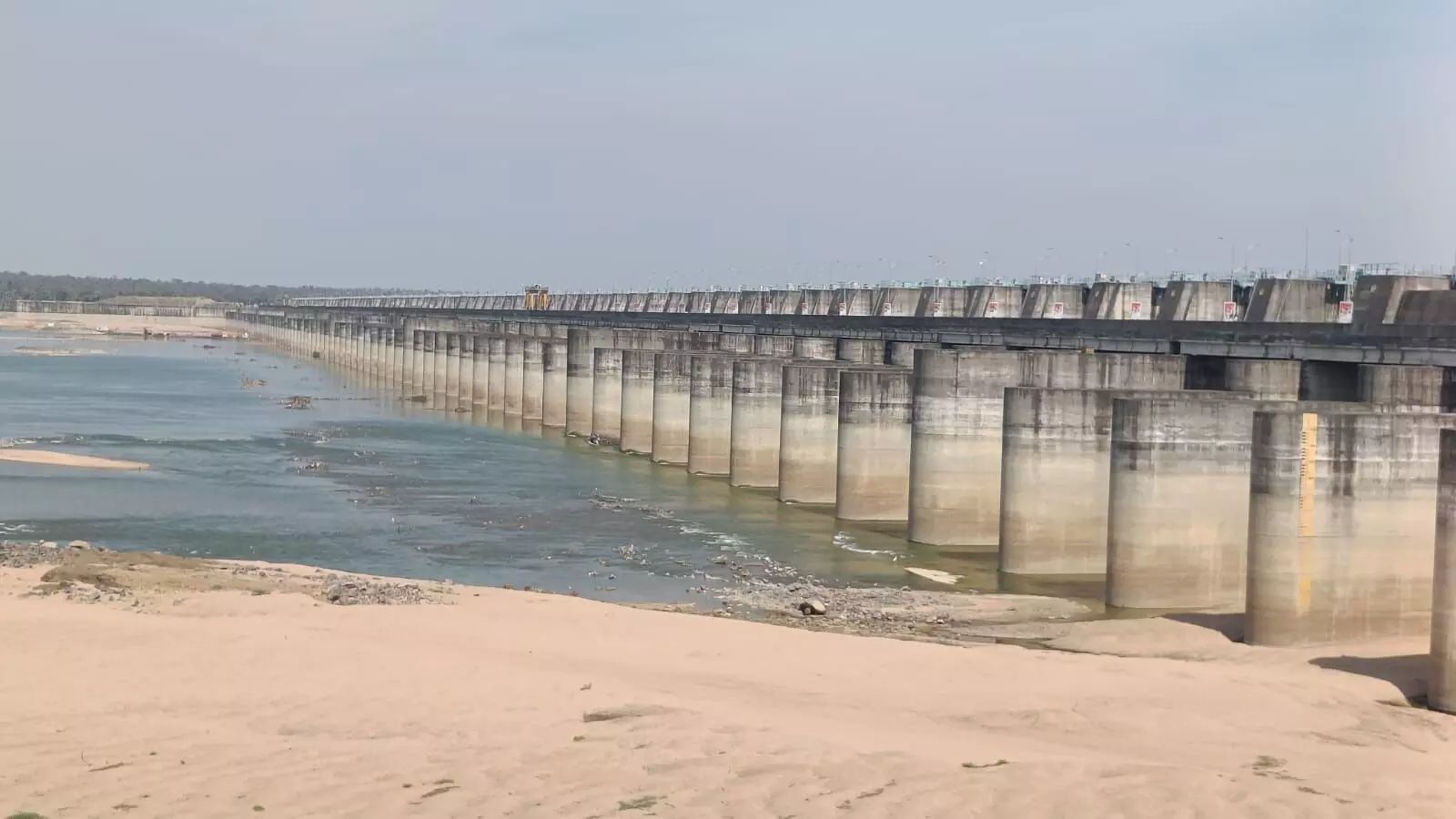CAG report: Every rupee spent on Kaleshwaram project would yield only 52 paise
As per the CAG report, running the KLIP on the Godavari River is going to be a ‘white elephant’ for the state
By Sistla Dakshina Murthy
Hyderabad: The Kaleshwaram Lift Irrigation Project (KLIP) is now anticipated to cost more than Rs 1,47,427.41 crores, with the capital cost of irrigation coming out to Rs 6.42 lakh per acre, in contrast to the Rs 81,911.01 crores projected cost to the Central Water Commission (CWC), according to the Comptroller and Auditor General of India (CAG).
The Congress government tabled the performance audit report on the Kaleshwaram project in the Telangana Legislative Assembly on Thursday. As per the CAG report, running the KLIP on the Godavari River is going to be a ‘white elephant’ for the state.
No administrative approval yet
The Government of Telangana has not accorded administrative approval to the project as a whole; instead, it has issued separate approvals, i.e., as many as 73 administrative approvals aggregating to Rs 1,10,248.48 crores. There are no orders from the government about the funding pattern for the project.
Out of the total expenditure of Rs 86,788.06 crores incurred on the project (March 2022), an expenditure of Rs 55,807.86 crores (i.e. 64.3 per cent) was met from the off-budget borrowings (OBBs) raised by Kaleshwaram Irrigation Project Corporation Limited (KIPCL), a special purpose vehicle to mobilise funds for Kaleshwaram project.
Project’s actual cost underestimated
The Benefit-Cost Ratio (BCR) of the project was inflated. Even with the understated project cost of Rs 81,911.01 crores, BCR works out to 0.75.
Considering the latest likely project cost (Rs 1,47,427.41 crores), the BCR works out to 0.52. This means that every rupee spent on the project would yield only 52 paise. It clearly indicates that the project was, ab-initio, economically unviable.
Apart from that, the CAG also pointed out that as a result of estimations using outdated pricing points and failing to account for price increases, the project’s actual cost was underestimated in the Detailed Project Report (DPR).
The outcome was an increase in the cost of works from Rs 63,352 crores to Rs 1.02 lakh crores due to these and other revisions made to the project work. This was due to anticipated construction costs, interest during the building process, and other unspecified costs associated with land purchase, rehabilitation, and relocation.
The CAG delineated the rationale for the redesign of Pranahita Chevella Sujala Sravanthi (PCSS) into the Dr BR Ambedkar PCSS and the Kaleshwaram initiatives.
In contrast to the project cost of previous PCSS projects, the combined cost of the Kaleshwaram and PCSS projects was anticipated to be Rs 85,651 crores during re-engineering.
It was shown that re-engineering increased the overall project cost by 122 per cent, but only by 52.22 per cent in the targeted command area. Even after the initial re-engineering, the project’s scope was expanded and altered, bringing the project’s current estimated cost to Rs 1.47 lakh crores without resulting in a rise in the advantages that were initially anticipated, according to the findings by the CAG in its report.
‘Changes to PCSS project led to losses’
The combined project cost of Kaleshwaram and PCSS was Rs 1.51 lakh crores. Given that the Pranahita project’s DPR was not ready by March 2022 and that its cost had not yet been determined, this could rise even more.
Additionally, some of the previously completed work had become superfluous as a result of the PCSS project’s re-engineering and modifications, which resulted in a loss of Rs 767.78 crores. Despite multiple flaws in the Water and Power Consultant's (WAPCOS) previous work on the DPR for the Pranahita Chevella project, which forced its re-engineering, the CAG noted that the irrigation department nevertheless entrusted them with the Kaleshwaram project.
“The department exhibited excessive haste in allocating works for the Kaleshwaram project, much as it did with the PCSS project. Even before the DPR was approved by CWC in 2018, the department awarded 17 works totalling Rs 25,049.99 crores related to the project,” according to the CAG report.
In the DPR, water for the project was proposed to be lifted from the Godavari River at the rate of 2 TMC per day. The pumping capacity was later increased to 3 TMC per day involving an additional cost of Rs 28,151 crores, the report said and added that 1 TMC of water was assumed to irrigate 17,688 acres of the command acreage while calculating the agricultural benefits. Roughly 10,000 acres may be served by a single TMC of water, according to data from past state projects.
As a result, the CAG stated, that there is a considerable chance that no water will remain for irrigation during the Rabi season and that the 169 TMC of water allotted for irrigation under the project will not be adequate for the Kharif season.
Out of the 56 project works, only 12 works were completed, 40 works were ongoing and four works have not even commenced, as of March 2022. Lands required for the distributary network, etc., are yet to be fully identified. The possibility of undue benefit of at least Rs 2,684.73 crores to the contractors for the supply and commissioning of pumps, motors etc., cannot be ruled out. Further, post-tender inclusion of price adjustment clauses resulted in avoidable payment of Rs 1,342.48 crores, the CAG said.